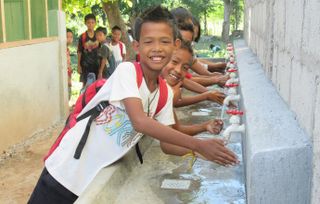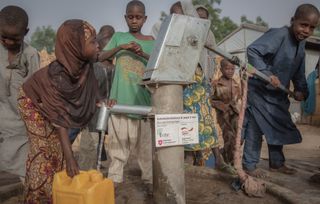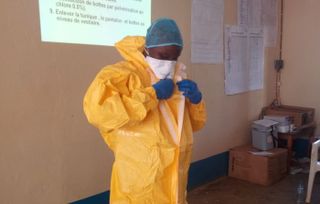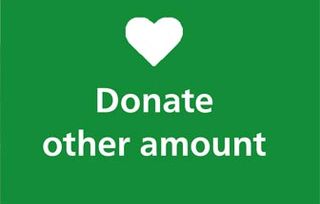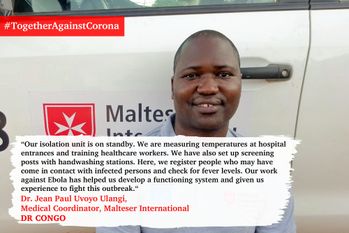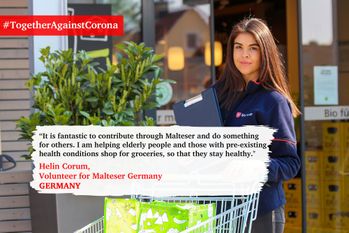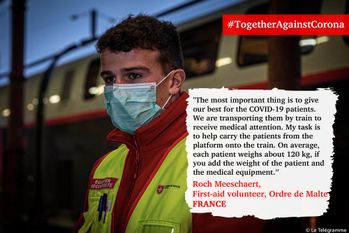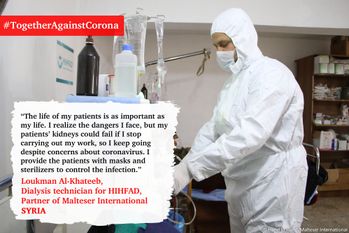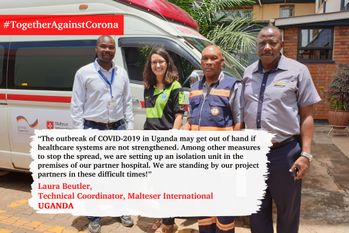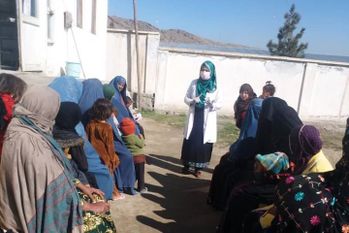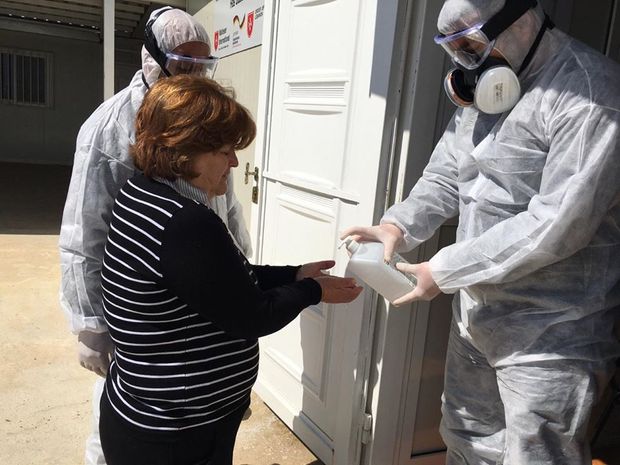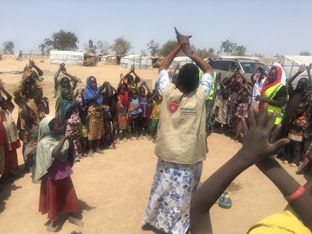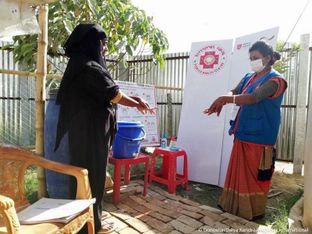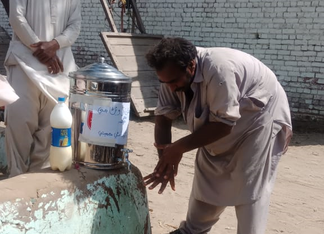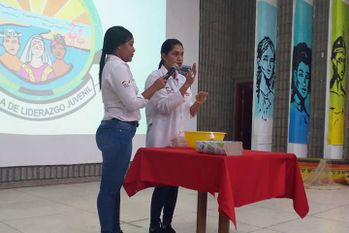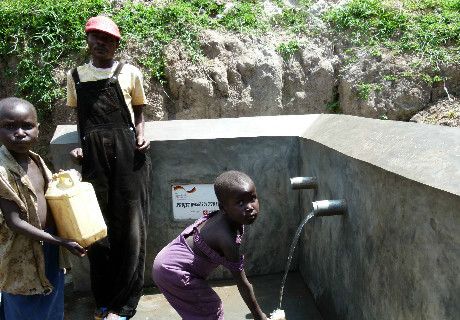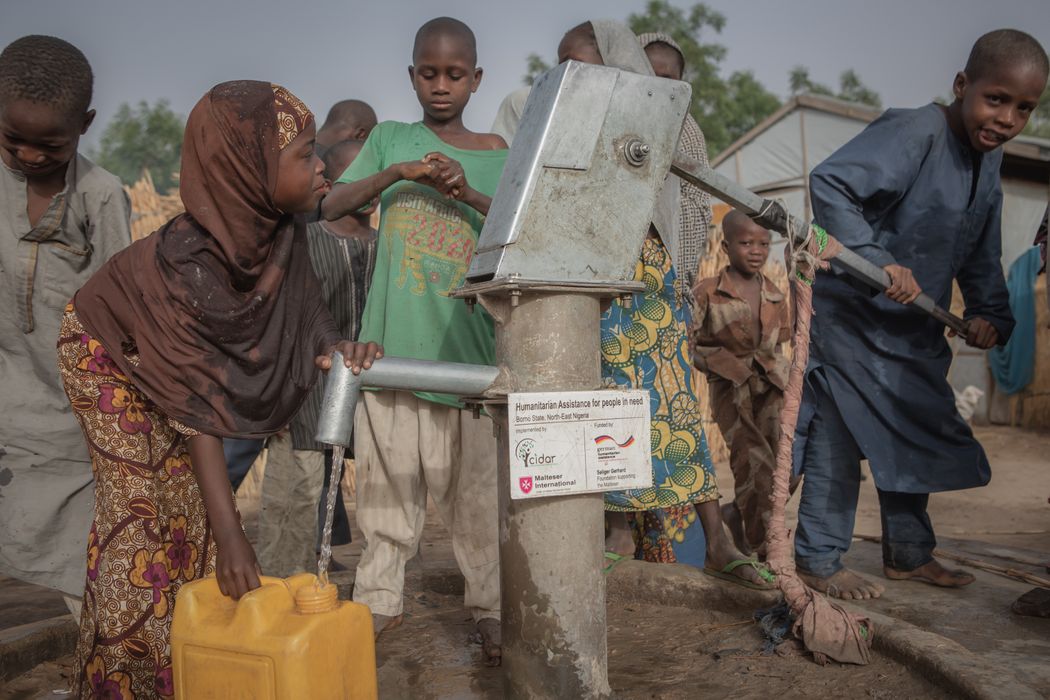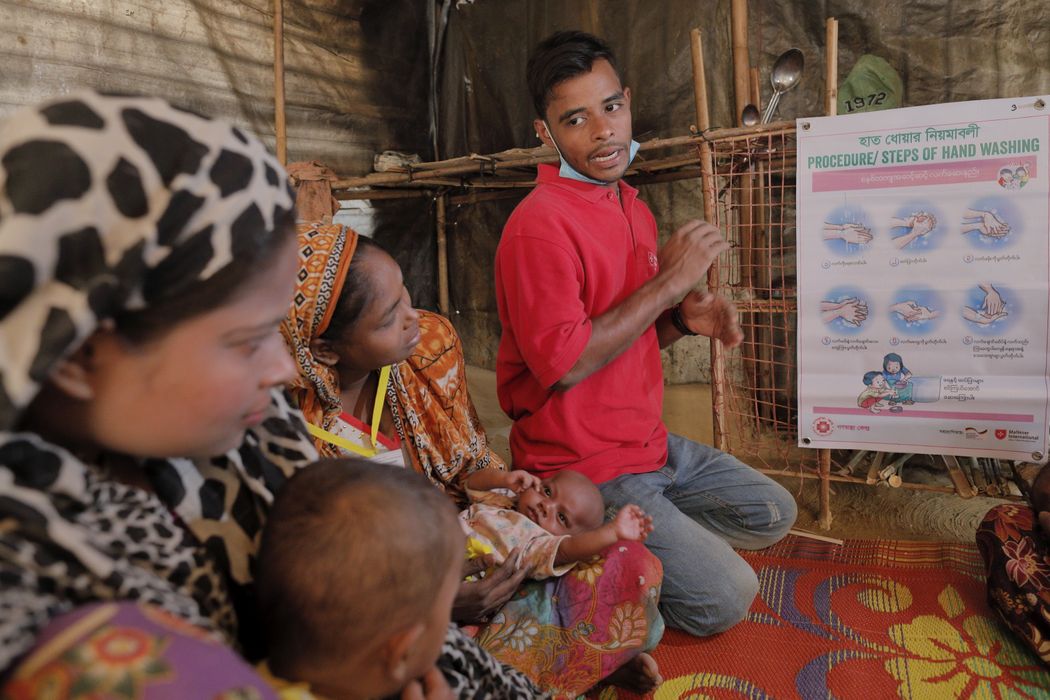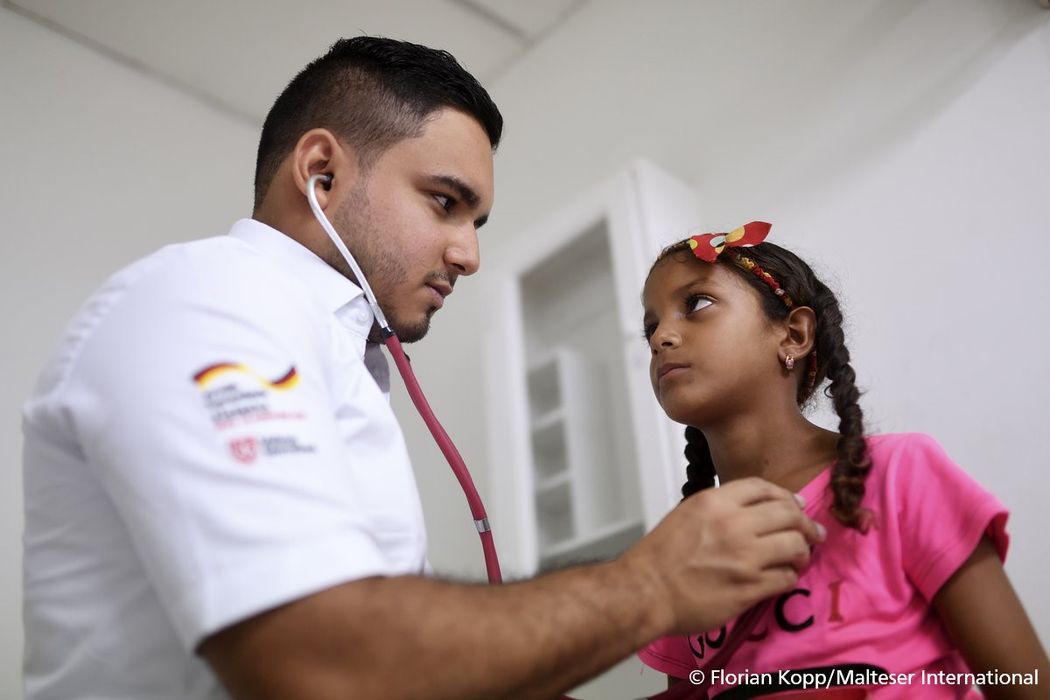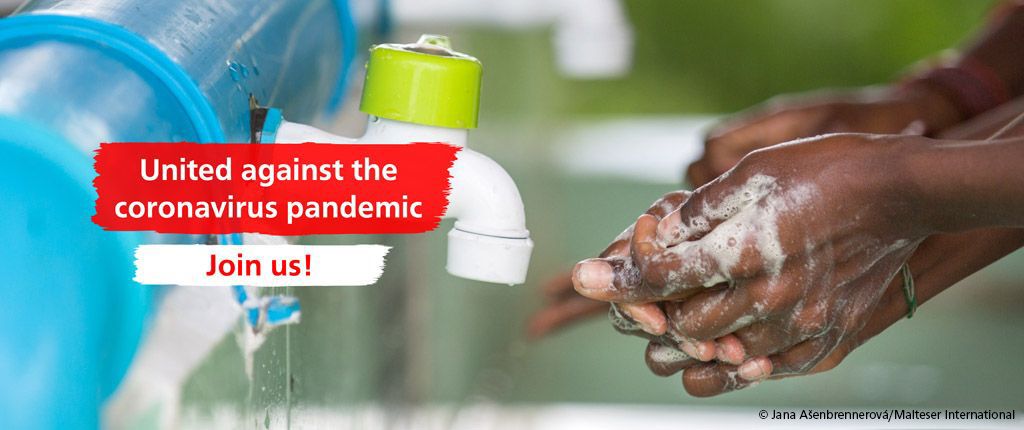
Coronavirus COVID-19 pandemic
Malteser International is responding to the COVID-19 pandemic across its projects worldwide. We are improving infection prevention and control measures to protect communities and health workers, and prevent further spread of the new virus. Because vulnerable people are disproportionately affected in times of crisis, we are committed delivering the lifesaving aid people in need around the world rely on.
The COVID-19 pandemic is not just a health crisis — it’s a global crisis on every dimension
The COVID-19 vaccines is bringing much-needed respite in rich countries. But the impacts of the pandemic on already vulnerable people remain: Millions of people have lost their jobs, families are starving, and learning has been put on hold for many children.
To ensure continued assistance for people in need worldwide, Malteser International has adapted its programs to focus on sustaining lifesaving humanitarian operations, supporting the global COVID-19 response, and mitigating the impacts of the pandemic on vulnerable populations.
Scroll down to read about our COVID-19 response.
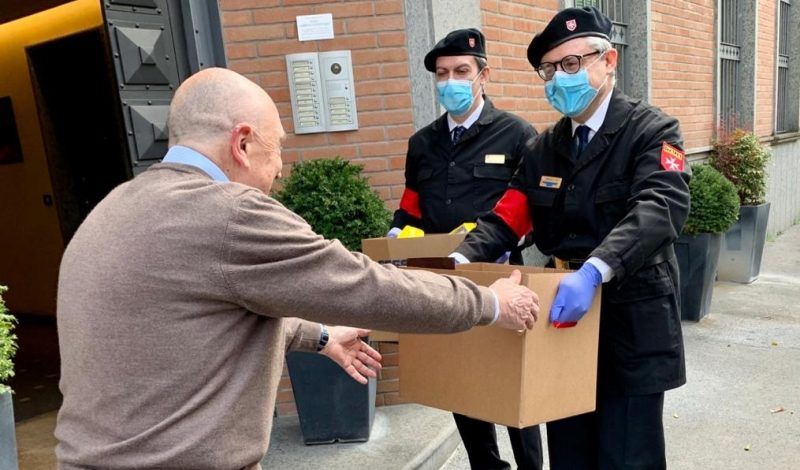
Together against the COVID-19 pandemic: See how you can help
#TogetherAgainstCorona
Malteser International's COVID-19 Global Response
-
In Afghanistan, we are supporting our partner UnionAid in measures to stop the spread of the virus in Kabul. Medical staff have received training on COVID-19, information on the virus and prevention measures has been provided to the public, and medicines, protective equipment, hygiene materials and oxygen cylinders have been stocked up in our health facilities. We are also supporting the national health authority in screening activities.
-
In Bangladesh, where we are working in refugee settlements to provide medical care and other services, we have set up hand washing stations in each of our health centers. Volunteers have been trained to educate the local community about the virus. They are also responsible for referring suspected cases to our health facilities for treatment. Our partner organization Gonoshasthaya Kendra (GK) has developed test kits to help fight the outbreak of the coronavirus.
-
In Cambodia, we are conducting COVID-19 awareness campaigns and distributing soap packets to vulnerable families.
-
In Cameroon, our Emergency Medical Team (EMT) supported COVID-19 response efforts after the country saw a rapid rise in cases and requested international assistance. The intervention ensured that healthcare workers treating patients did not become infected themselves and that medical facilities remained free of the virus.
-
In Colombia, Malteser International has already intensified its health and hygiene education activities, targeting migrants and refugees as well as host communities in the country’s La Guajira department. Health personnel have also received extensive training on protective measures for COVID-19. In addition to scaling up mobile medical missions to remote and border areas, Malteser International has distributed more hygiene articles to people in need. We have also provided emergency food packages to 1,000 Venezuelans refugees and migrants, while supporting health authorities in screenings at entry points in border areas in northern Colombia.
-
In the DR Congo, Malteser International is working to reduce the spread of COVID-19 by putting people at the centre of its response, using the P-FIM approach. We are also offering consulting services to healthcare professionals, providing training on COVID-19 and helping to procure essential medical materials like masks and respiratory equipment. Isolation units used during the Ebola epidemic have now been put to use to treat suspected cases in isolation. Malteser International is also setting up hand washing stations and conducting simulation exercises with health workers. Our P-FIM method has developed radio spots and programs that have reached up to 1.2 million people. Listen here to our Congolese Covid-19 song.
- In Haiti, we are distributing flyers on COVID-19, hand-washing and disinfecting surfaces. We are reaching out to the elderly population with particular care and attention.
- In Kenya, we are supporting local health interventions and have so far provided 27 health facilities with personal protective equipment. We are also supporting families in underserved areas of the country's capital, Nairobi with aid packages containing food and hygiene articles.
- In Lebanon, Malteser International's mobile medical service in Akkar and North-East Baalback continues to operate in accordance with the country’s containment strategy, coordinating with the municipalities on a regular basis and adapting itineraries and locations to the areas’ restrictions. Teams have been provided with personal protective equipment and have received additional training on safety measures. We are up to date on all COVID-19 reports from the World Healh Organization and the Lebanese Ministry of Public Health.
Medical Units bringing help to communities in Lebanon's Bekaa Plains
In Lebanon's Bekaa Plains, Malteser International and the Order of Malta Lebanon are committed to continuing our mobile medical services for the most vulnerable populations in spite of a national lockdown brouoght about by the COVID-19 crisis. Our Mobile Medical Unit, launched in the North East Bekaa area in October 2019, offers more than 2,200 free comprehensive healthcare services every month, including consultations, medicines, specialty referrals and hospitalization.
This intervention is supported by funds from Germany's Federal Foreign Office.
- In Myanmar, Malteser International conducts hygiene education sessions for members of the community and supports health authorities in Kayin State to provide personal protective equipments to health workers and volunteers.
- In Nigeria, our work in hygiene protection is currently focused on COVID-19 prevention. We are distributing hygiene products such as soap and buckets as well as providing information on proper hand washing.
- In Pakistan, Malteser International is increasing hygiene information campaigns as part of its work to strengthen communities against disaster. Local committees, established as part of Malteser International’s efforts in the region, have set up communal hand-washing points to mitigate the spread of the disease in their community. Plans are in place to distribute food packages to 3600 vulnerable families in the Sindh province who have lost their livelihoods due to country-wide lockdown.
- In Peru, adjustments have been made to Malteser International's project for the elderly, with house calls replacing group activities for the time being. The senior citizens receive information on preventive measures to avoid infection with COVID-19 during the house calls. They are also provided with hygiene articles including soap.
- In Syria, we are continuing our work with partners, Hand in Hand and Independent Doctor's Association, to support the capacity of medical facilities. We also remain active in the WASH sector, distributing water and hygiene products and helping to improve sanitary conditions in camps and informal settlements.
Northwest Syria: Preparing to fight COVID-19 in already difficult conditions
While no cases have been declared in Syria's northwestern Idlib province, the lack of medical infrastructure due to years of war could lead to a widespread outbreak of the disease in the region - especially in the overcrowded camps, where displaced people live in precarious conditions
To prepare for this new threat, Malteser International-supported organization Hand in Hand for Aid and Development is carrying out infection control measures in its health facilities like the Armanaz Hospital in Idlib. Watch Dr. Ayman Amori, Hospital Director, explain what is being done to reduce chances of the virus spreading.
- In Thailand, we are helping to prevent the spread of the novel coronavirus inside refugee camps. We have set up and equipped isolation facilities to take in COVID-19 patients.
- In Uganda, Malteser International is setting up an isolation unit on the premises of the Lubaga Hospital in Kampala. Measures to curb the spread of COVID-19 has led to restrictions on movement of people, including use of public or private vehicles. To ensure that sick or injured persons receive timely medical aid in spite of the lockdown, we have provided the hospital with an additional ambulance.
- In eastern Ukraine, where conflict has had a significant impact on the mental health of the population, Malteser International’s psychosocial support services have been adapted to the lockdown measures. We have opened several telephone helplines to ensure service access and continuity for people with mental health conditions, moved individual and group therapy sessions online, and are developing resources for citizens and health professionals to help them better cope with the psychological stress caused by the pandemic.
Pictures from our global coronavirus response
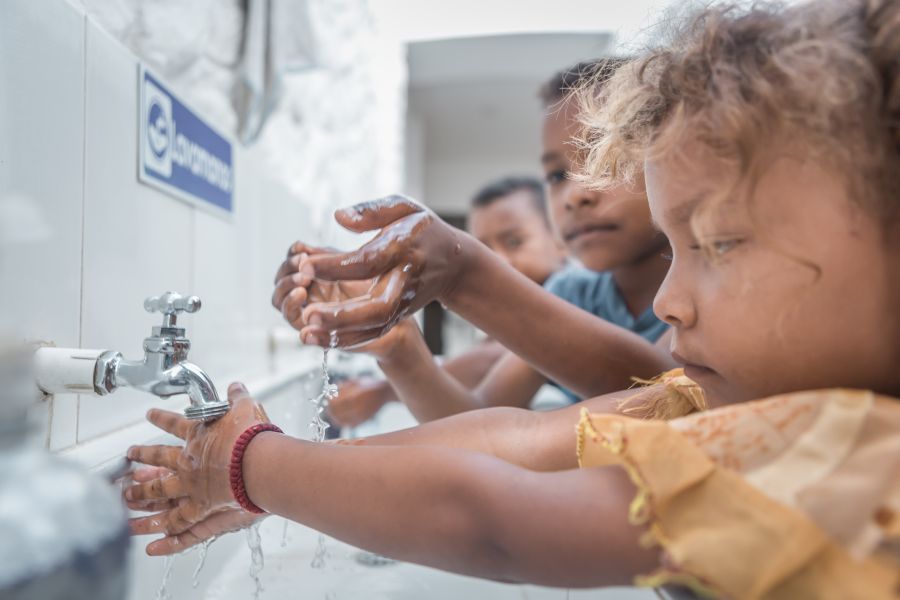
Basic protective measures against the new
coronavirus
- Wash your hands often with soap and water or use an alcohol sanitizer (containing at least 60% alcohol) if handwashing facilities are not available).
- Cover your cough or sneeze with a tissue, and throw tissue in a bin.
- Clean and disinfect frequently-touched objects and surfaces.
- Avoid touching your face, eyes, nose, and mouth with unwashed hands.
- More important information from the World Health Organization

